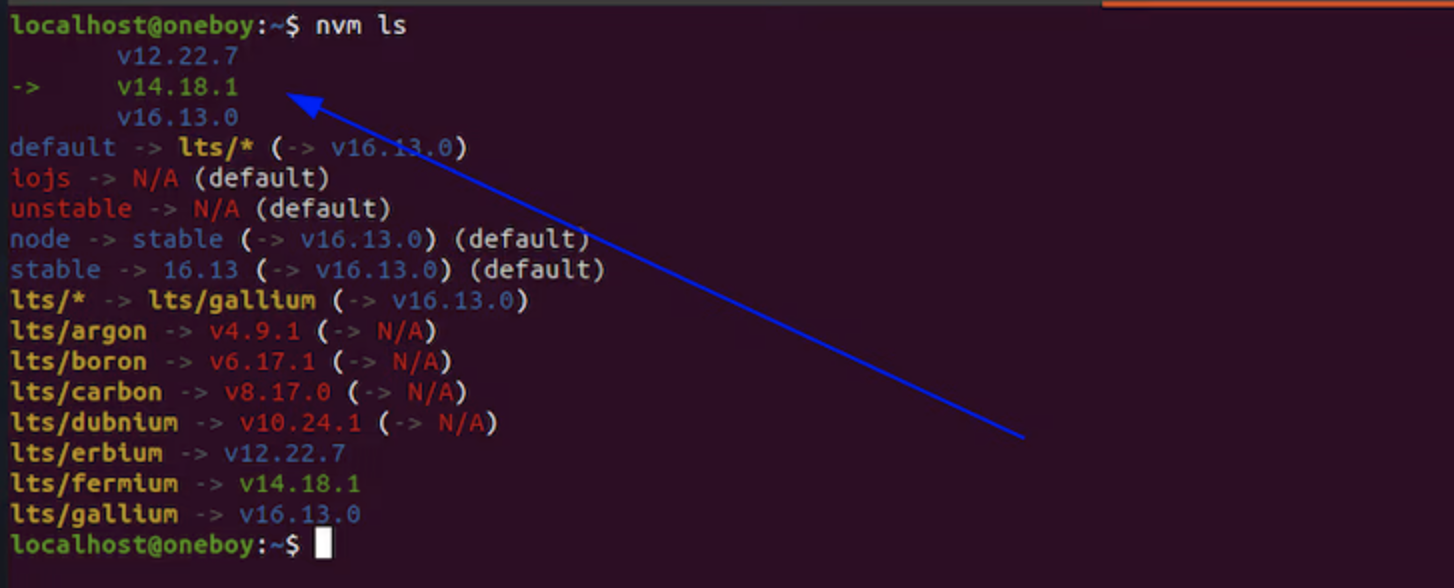Node Version Manager is a tool that helps us manage Node versions and is a convenient way to install Node. Think of it as npm or Yarn that helps manage Node packages, but instead of packages, NVM manages Node versions.
This also means you can install multiple Node versions onto your machine at the same time and switch among them if needed.
Displaying a List of Node.js Versions
We can now view all the versions we downloaded so far with
nvm ls
The list then appears:

The first three lines show the list of Node versions with the arrow pointing to the 14.18.1 version that is currently in use; when a version is used, it displays as green.
Switching Among Node.js Versions
The best feature about NVM is the ability to easily switch between different Node versions. Say we must use version
16.13.0 and then switch to 12.22.7; we can simply run either nvm use 12.22.7 or nvm use 16.13.0 to easily switch
into either version we need.
Troubleshooting
Changing Node Version
⚠️ Warning: This answer does not support Windows OS
Suppose we would like to down-grade version from 18 to 14, then we can use n for node's version management like this.
There is a simple intro for n.
npm install -g n
n 6.10.3
This is very easy to use. then you can show your node version:
node -v
v6.10.3
The available node versions can be found on Node's release page
For windows nvm is a well-received tool.
"npm install" Error
GitHub Operation Times Out
git config --global url."https://".insteadOf git://
This will change all of your urls so that they all start with https:// which shall be working for you.
node-sass Version Issue
Running npm install gives
.node-gyp/18.7.0/include/node/v8-internal.h:646:38: error: no template named 'remove_cv_t' in namespace 'std'; did you mean 'remove_cv'?
What you're seeing is an error during compilation of node-sass. That's a package processing your Sass/SCSS styles, which is written in C++ and only re-packaged as a JavaScript library. The fact it's written in C++ means it needs to be compiled on your device during installation (this is internally done by a tool called node-gyp, which you can spot in your error output, too).
The problem is node-sass with the specified version in package.json doesn't support Node version installed on the machine. The node-sass community needs time to catch up to support it (and that's fair, as it's a volunteer-driven project).
Case-by-case soulutions would be either upgrading sass versions or downgrading Node